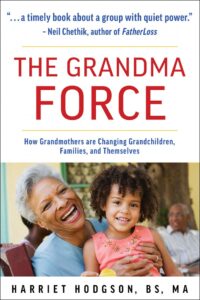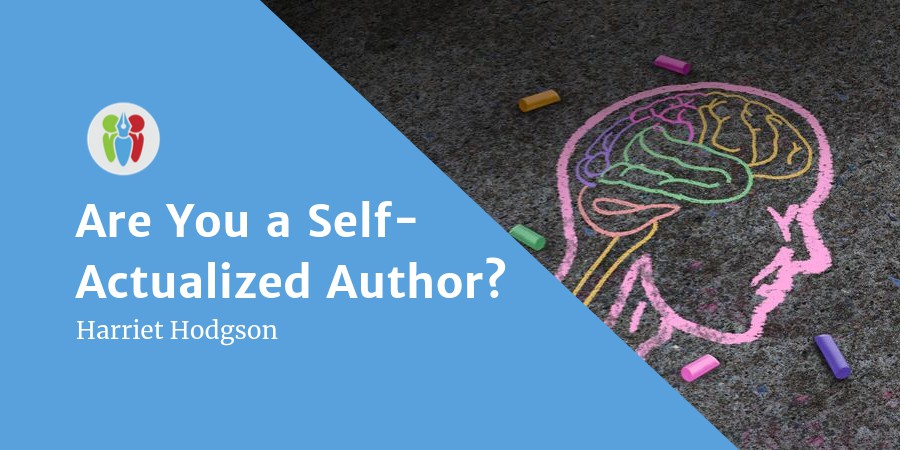Having a book published is exciting. In the glow of your excitement, however, you may miss an important fact. Authors are business owners. Your name, work, and brand are a business. Previously, you may have thought of writing as a hobby. No more. To become a self-actualized author, you have to take your business to the next level. Author member Harriet Hodgson tells us about her journey.
It's a Journey
 I’ve been a freelancer for thirty-eight years and my business has continued to grow. This growth didn’t always lead to increased sales. Other things happened along the way – developing relationships with editors, identifying “influencers” in my writing genre, and improving my work. Somehow (and I’m not sure how) I managed to adapt to shifting industry trends. When it comes to writing, I’m a survivor.
I’ve been a freelancer for thirty-eight years and my business has continued to grow. This growth didn’t always lead to increased sales. Other things happened along the way – developing relationships with editors, identifying “influencers” in my writing genre, and improving my work. Somehow (and I’m not sure how) I managed to adapt to shifting industry trends. When it comes to writing, I’m a survivor.
How had my business changed? Could I do more to grow my business? These questions reminded me of the courses I took for my certificate from the American Management Association. Applying self-actualization to business is the part I remember most.
The Concept of Self-Actualization
The idea of self-actualization comes from American psychologist and college professor, Abraham Maslow.
Maslow identified five essential human needs and diagramed them with a triangle.
- Psychological needs, such as food, water, warmth, and rest, form the base.
- Safety needs, including basic safety and safety precautions, are next.
- Belongingness and love are in the middle of the trianble.
- Esteem needs, including prestige and a feeling of accomplishment, are near the top.
- Self-actualization—creative activities and achieving one’s full potential—are at the top.
I wondered if I was a self-actualized author. Applying the needs to writing could help me achieve my business goals: name recognition, branding, increased media coverage, more published books, and getting to know other authors. Self-actualization could help your career too. Let’s look at each of Maslow’s needs one-by-one.
Psychological Needs
If you don't want to publish independently, finding a traditional publisher or a reliable independent publisher may be your first need and requires research. I live in Rochester, Minnesota, USA and the state has dozens of indie publishers. Paying for their services is like ordering a la carte food from a menu. To my surprise, I discovered one indie publisher charges rent for the wooden pallet that books are stored on in the warehouse. Do your homework before you sign with an indie publisher.
Questions about Amazon publishing have appeared on social media lately. Some posts question the quality of Amazon books. I’ve used Amazon and my books were professional looking. Be forewarned, though, because the corrections process is detailed and labor intensive. Hire help if you don’t have the skills to do this. A student may be able to help you.
Safety Needs
For me, the publisher’s reputation is a safety need. I’m currently with a hybrid publisher. What’s the difference between a regular and a hybrid publisher? Indie publishers tend to accept all submissions. Hybrid publishers accept selected manuscripts and the author pays for basic expenses: copy editing, proofreading, cover design, back cover copy, etc. If the publisher is pleased with sales, it may pay for your next book.
Reading every clause of a book contract is a safety need. I used to have a publications lawyer and was surprised when she added a clause to my contract. According to the clause, the cover couldn’t be changed without my permission. Book covers have been changed for the European market, she explained, and “bosomy covers” appeared on serious books. The moral of this story: Read your contract carefully.
Belongingness and Love

The Grandma Force by Harriet Hodgson
Feeling like you are part of a team is comforting and energizing. My hybrid publisher has done an excellent job of team building. Author news is posted on their website, authors support each other on social media, and the publisher gives authors free webinars on timely topics, such as building their brand. The webinars are true gifts for authors.
My publisher believes authors are colleagues, not competitors, and we can help each other. We “like” online posts, mention fellow authors, and cheer for them. Though I’ve never met the publisher's president but her emails and phone calls make me feel we are kindred souls. We’re in sync.
ALLi membership gives you a sense of belongingness and love. In addition to ALLi, I belong to the Association of Health Care Journalists and learn from its magazine. After my elder daughter (the mother of my twin grandchildren), and three other family members died in 2007, I joined the Minnesota Coalition for Grief Education and Support. Check out the professional organizations that apply to your writing genre. Learn from them and support them. I put the ALLi logo on my business card, for example.
Esteem
Early in my career, receiving a rejection notice deflated my self-esteem. Now I see rejection as a learning experience. Rejections make me remember my father-in-law’s comment when he was trying to sell his old car: “All it takes is one.” The same is true of a publisher’s acceptance. All it takes is one publisher to make your book a reality.
Developing a track record also boosts self-esteem. I come from a generation that was trained not to brag and talking about my books seemed like bragging. My publisher's president corrected me. “You’re not bragging,” she explained. “You’re stating facts.” Her assurance gave me the courage to publicize my books.
I researched media kits, created a features/benefits handout, edited/shortened my author bio, wrote a Q and A sheet for reporters, and posted photos on my website. Every indie author needs a well-designed site. If you don’t have a website, get one now. My granddaughter designed my website and updates it. The folks at web.com think it’s a well-designed, appealing website.
Though I had a business card, I asked a graphic designer to re-do it. Basic information is on the front of the card. The cover of my latest book is on the back. To spread the word about my family caregiver series, I asked the designer to create an information card. I distribute cards at my workshops and talks. I also give bookmarks away.
Self-Actualization
Experience and self-actualization pushed my career forward. Today, I write for three websites, am on social media daily, and involved in a Facebook marketing campaign. Though I’ve had some pricey publicists, social media are the best publicity. This is my 22nd year as a family caregiver and my current work focuses on caregiving and grandmothering.
Self-actualization may jump-start your writing career. Don’t expect instant results. Be patient and be persistent. These proactive steps can help you reach your goals.
- Access the Internet and enter the search words self-actualization. Print out selected articles and read them.
- Make a list of your basic needs and brainstorm on the actions you might take.
- Be willing to spend money to make money.
- Use your talents, such as art talent or writing back cover copy, to save money.
- Believe in yourself and the ideas you wish to share.
- Be adventurous. Step out of your comfort zone and see what happens.
- Give yourself credit for what you accomplish. Even baby steps are steps forward.
- Remember my mantra: Blessed are the plodders, for they shall be published!
Are You a Self-Actualized Author? @healthmn1 #indieauthor #selfpublishing #IARTG #ASMRG #writingcommunity Share on X
OVER TO YOU
Are you a self-actualized author? What steps do you need to take before you get there?




